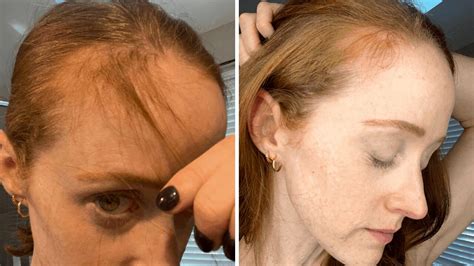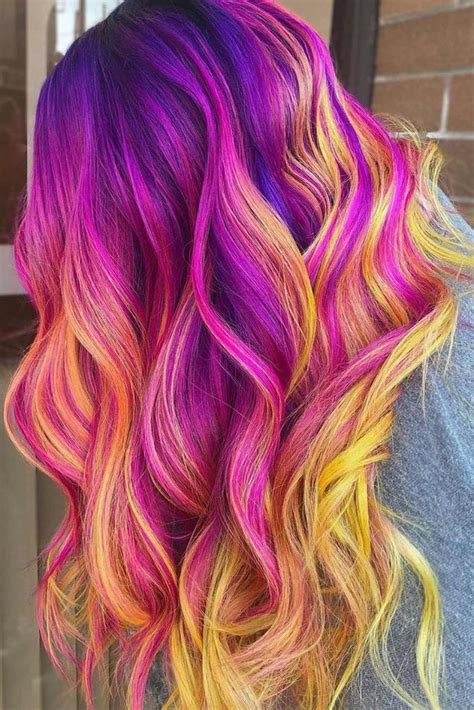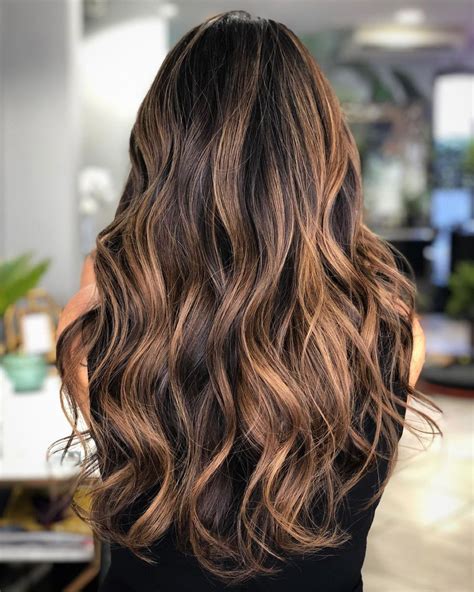Discover how pregnancy affects hair, nutrition tips, recommended care practices, stress management, and when to seek professional help for healthy hair growth.
Understanding Pregnancy Hair Changes
Contents
During pregnancy, hormonal changes can affect a woman’s hair in various ways. Many women experience thicker and fuller hair during pregnancy due to increased levels of estrogen, which can prolong the growth phase of the hair cycle. This can result in reduced shedding and an overall increase in hair volume.
However, it’s important to note that not all women experience the same changes in hair growth during pregnancy. Some women may notice changes in the texture of their hair, such as increased oiliness or dryness. Others may experience hair loss or thinning, which can be attributed to hormonal fluctuations and changes in the hair growth cycle.
It’s also common for women to experience postpartum hair shedding in the months following childbirth. This shedding occurs as a result of the body returning to its pre-pregnancy hormonal state, which can cause a larger number of hairs to enter the resting phase and eventually fall out.
While these changes in hair growth are a normal part of pregnancy and childbirth, it’s important to consult with a healthcare professional if you have concerns about excessive hair loss or changes in hair texture. They can provide personalized recommendations for managing hair changes during pregnancy and postpartum.
Nutritional Tips for Hair Health
When it comes to maintaining healthy hair, proper nutrition is key. Your hair’s health is directly influenced by the foods you eat, so it’s important to consume a balanced diet rich in essential vitamins and nutrients.
First and foremost, protein is essential for healthy hair growth. Include protein-rich foods such as lean meats, fish, eggs, and dairy in your diet to promote strong and lustrous hair. Additionally, omega-3 fatty acids found in fish, flaxseeds, and walnuts can help nourish the scalp and improve hair elasticity.
Vitamins play a crucial role in maintaining hair health. Vitamin A helps produce sebum, which is the scalp’s natural hair conditioner. You can find vitamin A in carrots, sweet potatoes, and spinach. Biotin, also known as vitamin B7, supports the production of keratin, a protein that makes up the majority of your hair. Foods rich in biotin include nuts, eggs, and whole grains.
Iron is another important nutrient for hair health, as it helps carry oxygen to the hair follicles. Incorporate iron-rich foods such as spinach, lentils, and lean red meat into your diet to prevent hair loss and promote growth. Lastly, hydration is key for maintaining healthy hair. Make sure to drink plenty of water and consume foods with high water content, such as cucumbers and watermelon.
By incorporating these essential nutrients into your diet, you can improve the overall health and appearance of your hair, promoting growth and preventing hair loss.
Recommended Hair Care Practices
Recommended Hair Care Practices
When it comes to maintaining the health and appearance of your hair, it’s important to establish good hair care practices. This involves not only using the right products, but also following a regular hair care routine to ensure your hair stays strong and vibrant.
First and foremost, it’s crucial to use high-quality hair care products that are suited to your hair type. This includes using a gentle shampoo and conditioner that is free from harsh chemicals or sulfates. Investing in a good quality hair mask or deep conditioner can also help keep your hair nourished and moisturized.
In addition to using the right products, it’s important to establish a consistent hair care routine. This includes washing and conditioning your hair regularly, as well as using any additional treatments or styling products as needed. For example, if you use heat styling tools, be sure to use a heat protectant spray to minimize damage.
It’s also important to protect your hair from environmental damage, such as excessive sun exposure and chlorine from swimming pools. Wearing a hat or using a UV protectant spray can help shield your hair from the sun’s harmful rays, while rinsing your hair with fresh water before and after swimming can help remove chlorine and prevent damage.
Lastly, maintaining a healthy lifestyle can also contribute to the overall health of your hair. Eating a balanced diet, staying hydrated, and getting regular exercise can all help promote strong, healthy hair. In addition, managing stress levels and getting enough sleep can also have a positive impact on the condition of your hair.
Managing Stress for Hair Growth
Stress can have a significant impact on hair health, as it can lead to hair loss and thinning. Managing stress is crucial for promoting hair growth and overall well-being. Finding effective ways to reduce stress levels can help prevent hair loss and maintain healthy hair.
One way to manage stress for hair growth is through regular exercise. Physical activity can help reduce stress and improve blood circulation, which in turn promotes hair growth. Whether it’s a simple walk, a yoga session, or a high-intensity workout, finding an exercise routine that works for you can help reduce stress and support hair health.
Another effective way to manage stress for hair growth is through relaxation techniques such as meditation and deep breathing exercises. Taking time to practice mindfulness and relaxation can help reduce stress levels and promote hair growth. Incorporating these techniques into your daily routine can have a positive impact on both your mental well-being and your hair health.
Additionally, seeking support from friends and family can help alleviate stress and create a sense of community, which is essential for maintaining hair health. Connecting with loved ones and sharing your feelings can provide a much-needed sense of relief and reduce stress levels, ultimately supporting hair growth and overall wellness.
In conclusion, managing stress is crucial for promoting hair growth and preventing hair loss. By incorporating regular exercise, relaxation techniques, and seeking support from loved ones, you can effectively manage stress and support your overall well-being and hair health.
Seeking Professional Help When Needed
It is important to seek professional help for hair issues when needed, especially if you are experiencing significant hair loss or thinning postpartum. A dermatologist or a trichologist can provide a proper diagnosis and recommend suitable treatment options based on the underlying cause of your hair problems.
If you have tried various hair care products and home remedies without any improvement, it is time to consult with a professional. They can conduct thorough examinations, such as blood tests and scalp evaluations, to identify any underlying health conditions that may be contributing to your hair issues.
Seeking professional help is crucial for pregnant and new mothers who may be dealing with hormonal changes that are affecting their hair growth. Professionals can offer personalized advice and treatment plans to help manage these changes and promote healthy hair growth.
When choosing a professional to help with your hair issues, it is important to look for someone with experience and expertise in treating hair and scalp conditions. Whether it is a dermatologist, trichologist, or hair specialist, they should be able to offer tailored solutions to address your specific hair concerns.











